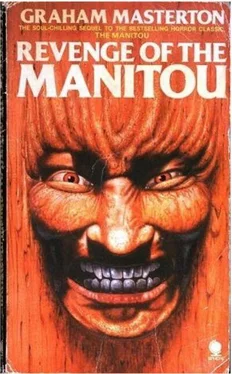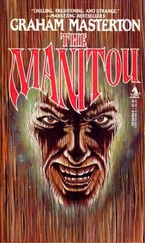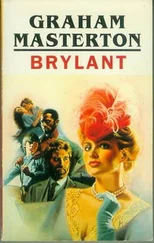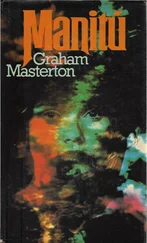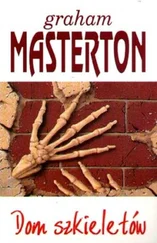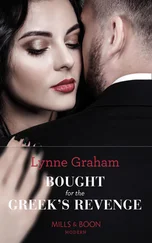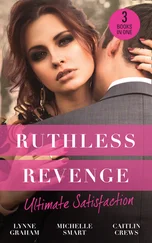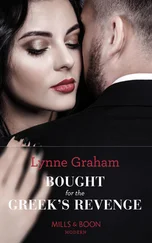It took him a half-hour to locate the number he wanted. It was a Manhattan number, from an address on Tenth Avenue. He checked his watch. It was almost three o’clock in the morning in New York, but he knew that he wouldn’t be able to wait any longer. He had to know now, before another day dawned, before the spirits gained even more time and even more strength.
The phone rang and rang for almost ten minutes. When there was no reply, he put down the receiver, dialed the number again, and let it ring some more.
Eventually, he heard the phone at the other end being picked up. A nasal, sleep-worn voice said, “Yes? Who the hell’s this?”
Neil coughed. I’m sorry to wake you. I wouldn’t have called at all, but it’s desperately urgent.”
“What’s happening? Is the world coming to an imminent end?”
“Something almost as bad,” said Neil.
“Don’t tell me. They’re banning hot dogs because they give you bowlegs.”
“Mr. Erskine,” said Neil, and he felt himself unexpectedly close to tears, “I’m calling you because there’s nobody else.”
“Well,” answered the voice, “if it’s that critical, you’d better tell me what you want.”
“This isn’t a joke, Mr. Erskine. I’m calling because of Misquamacus.”
There was silence. To begin with, Neil wondered if Mr. Erskine had put the phone down. But he could still hear the singing noise of the transcontinental telephone cables. The silence lasted almost half a minute. Then Mr. Erskine queried softly,
“Misquamacus? What about Misquamacus? Where did you ever hear about Misquamacus?”
“Mr. Erskine, I have met Misquamacus. Or a form that Misquamacus took. He came this evening, and it was only luck that I wasn’t killed.”
Again, there was silence.
“Are you there?” asked Neil.
“Sure I’m here,” said Mr. Erskine. ‘I'm just thinking, that’s all. I'm thinking that I’m hoping that you’re not telling me the truth, only I know that you are because nobody knows about Misquamacus except for the people who helped me get rid of him.”
“Then it’s true?” said Neil. “What Misquamacus said about you was actually true?”
“You say you’ve seen him,” Mr. Erskine retorted. “What do you think?”
Almost swamped with relief, Neil said, “It’s true. It must be true. My God, the whole damned thing is true.”
“That’s what makes it so frightening,” Mr. Erskine pointed out. “Did you say you saw him?”
“Only a form that he took. The form of a wooden man. And he’s been speaking through my son, Toby, who’s eight. He says that he’s coming back to take revenge on the white men. His spirit-his manitou-is going to take possession of Toby and get reborn.”
“Almost the same as it happened before.” said Mr. Erskine soberly. “Listen-will you hold on to the phone while I fix myself a seltzer?”
“Sure,” said Neil, and waited. After a few moments, the phone was picked up again, and Mr. Erskine said, “Do you know what he’s trying to do? Has he given you any kind of idea?”
Neil answered, “Not very clearly. It’s something to do with the day of the dark stars, which is a day when twenty-two of the most powerful medicine men from all ages in history and all different tribes are supposed to get themselves reborn and call down some of the Indian gods. It’s the day when they’re supposed to kill one white man for every Indian who ever died at white hands.”
“That sounds about Misquamacus’s style,” put in Mr. Erskine. “Did you say two of the most powerful medicine men?”
“No, no-twenty-two.”
“Twenty-two? You’ve got to be kidding.”
“That’s the legend. And that’s what Misquamacus told me.”
There was more silence. Then Mr. Erskine said, “Listen, fellow, I’ve got to talk to someone about this. Why don’t you leave me your number, and your name, and 111
call you back.”
“Sure,” said Neil. “My name’s Neil Fenner, and I live in Bodega out in northern California. Not far from Sonoma, you know? My number’s 3467.”
“I got that,” Mr. Erskine told him. “Give me a couple of hours, and I promise I’ll come back to you.”
“Mr. Erskine-”
“Call me Harry, will you? We haven’t met yet, and we don’t know who the hell each other is, but if you’re talking seriously about Misquamacus, then I think we’d better get ourselves on first-name terms.”
“Okay, Harry, that’s fine. But what I wanted to say was that Misquamacus told me he had some kind of personal score to settle.”
“A personal score?”
“That’s right. With you, and with some Indian called Singing Rock. He said that you’d destroyed him when he tried to get himself reborn some time before, and that he was going to fix you for it.”
Harry Erskine sounded uncomfortable. “I see,” he said quietly. “Well, I guess that figures. Misquamacus is the revenge of a whole nation, all wrapped up into one. If he says he’s going to kill us all, then by God, Neil, he means it.”
At school that day, Mrs. Novato noticed that her class was curiously quiet and diffident. They went through their morning’s lessons without any fidgeting or misbehaving, and filed out for their lunch break in an orderly way. She sat at her desk, watching them through the window, wondering what it was about them that disturbed her so much.
It was only when she saw them gathered at the far end of the school yard, talking solemnly among themselves, that she realized what it was. None of them had laughed all day. None of them had smiled.
She got up from her seat and walked to the window, eating an apple. She hoped they weren’t catching anything. It was the class outing to Lake Berryessa on Monday, and she didn’t want to have it spoiled by colds or flu.
She was curious to see what the children were doing. Normally, they ran around the yard, playing tag or ball. But today they were standing in a circle, all by themselves, and they had linked arms. They were circling around and around, their feet shuffling as if they were dancing. She had never seen children do anything like that before, and she found it strangely upsetting.
A gray cloud crossed the sun, and the school yard went dull. But’ the children continued to shuffle and sway, and she was sure she could hear them singing.
At that moment, Mr. Saperstein, the visiting music teacher, came in through the school porch and waved a hand to Mrs. Novato in greeting. He was wearing his frayed Panama hat and his frayed linen suit, and he had a camera slung over one shoulder and a flute case over the other.
“Hello, Mrs. Novato. How are you getting along? Doesn’t the weather get worse every year? It’s the Russians and their magnetic fields. We should tell them to stop or pay the price.”
Mrs. Novato was frowning as she stared at the children, and she didn’t answer. Out in the hall, Mr. Saperstein paused, and then came into her classroom and said,
“What’s so fascinating? I could have walked in naked.”
Mrs. Novato looked at him quickly and smiled. “Oh, I’m sorry. I was just fascinated by what my class is doing.”
Mr. Saperstein raised his spectacles and squinted out into the dull sunlight.
“They’re dancing, aren’t they?” he said. “What’s so strange about that?”
“It might not have been strange in the days of square dances and folk festivals,” said Mrs. Novato, “but these children have never danced like that before in their whole lives. They don’t know how.”
Mr. Saperstein shrugged. “They obviously do, or they wouldn’t be doing it. It’s interesting, though. It looks like a Greek folk dance. The way they’re all holding on to each other’s shoulders and jogging around like that.”
Читать дальше
